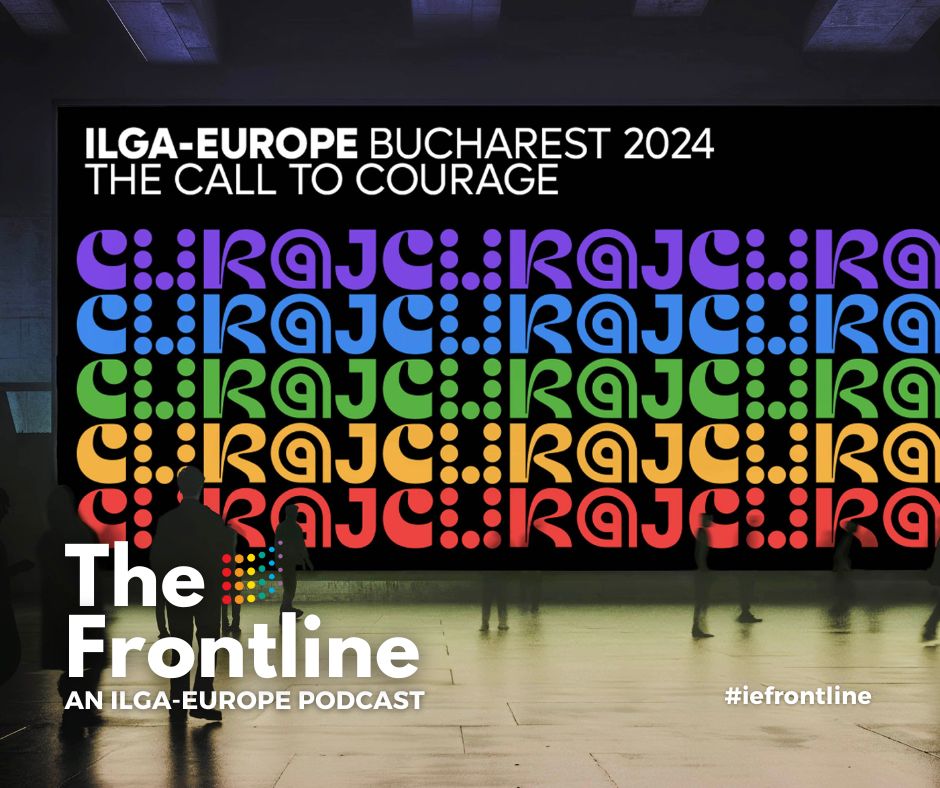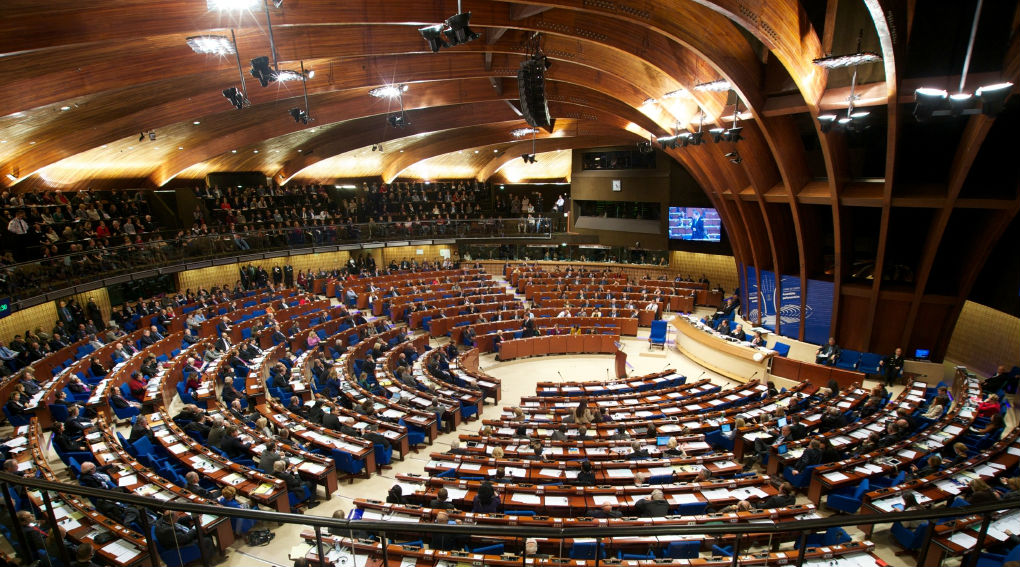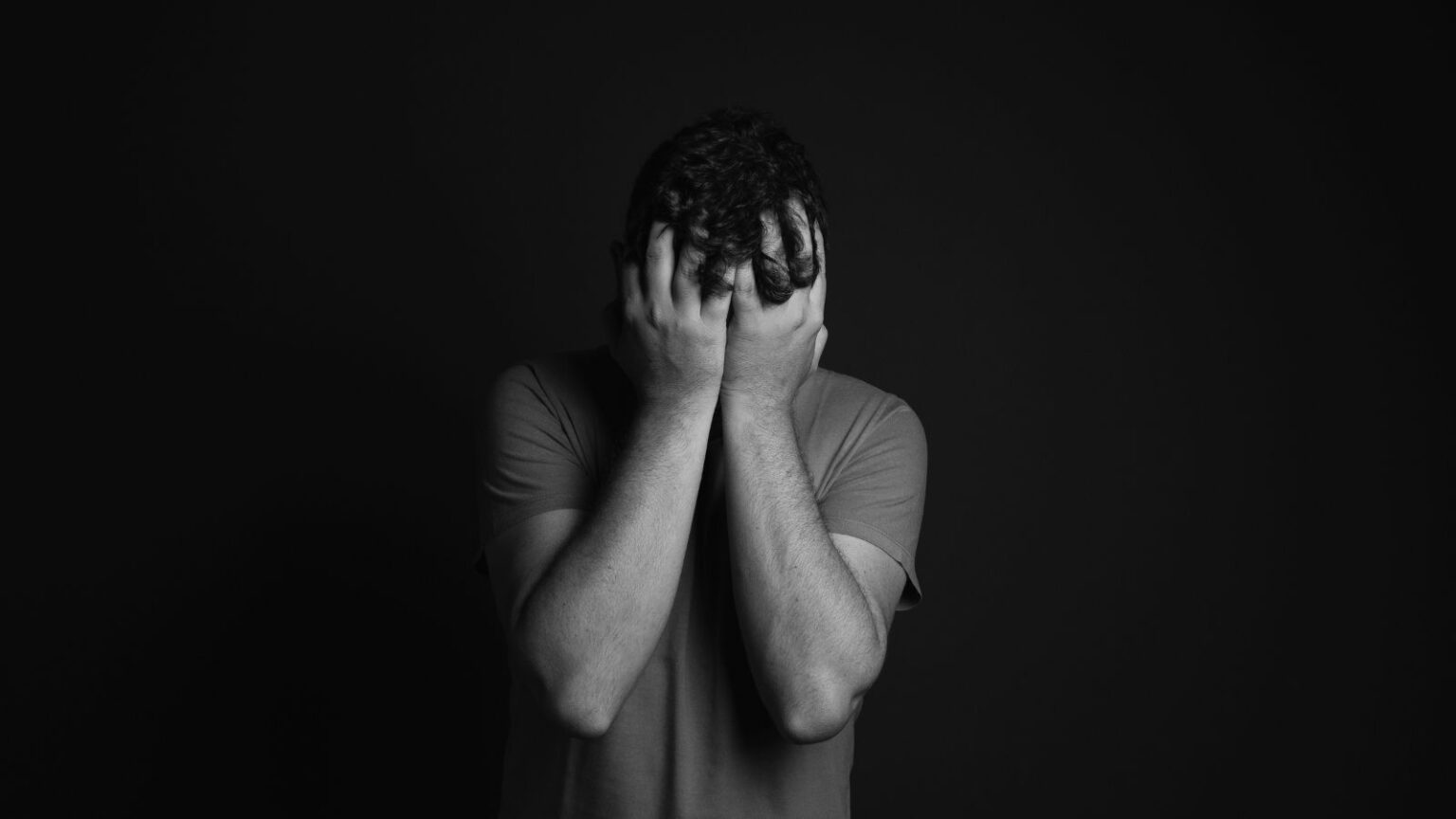The Frontline: LGBTI activism: Courage to seek new strategies

This summer in Bulgaria, as two new anti-LGBTI laws were fast-tracked in advance of forthcoming elections, a cross movement effort came together to try and stop it.
With rising levels of backlash and political scapegoating, how do LGBTI organisations relate to the greater struggle for democracy, freedom and equality? How do we avoid playing into political division in our quest for success? And in a world where there are no easy wins, what does that success look like?
For our panel on finding the courage to seek new strategies in current political contexts, ILGA-Europe’s Advocacy Director, Katrin Hugendubel is joined by Irena Moozova, Deputy Director General responsible for the International Dimension of Justice Policies, Rule of Law, and Equality in the European Commission, Béatrice Fresko-Rolfo, General Rapporteur for LGBTI rights at PACE in the Council of Europe, Denitsa Lyubenova, lawyer from the LGBTI organisation Deystvie in Bulgaria, and Magda Rakita from Fundacja Interakcja in Poland.
Safety and rights for lesbians in Europe

On International Lesbian Day, we highlight the recent report by the Committee on Equality and Non-Discrimination, emphasising the need for targeted policies to protect lesbians from violence and discrimination across Europe
Lesbian, bisexual, and queer (LBQ) women face profound challenges rooted in discrimination, violence, and systemic inequality. The recent resolution and report adopted by the Parliamentary Assembly of the Council of Europe on 03 October highlights the urgent need for comprehensive policies that address these issues. Intersectional discrimination, where sexual orientation and gender intersect for LBQ women and the marginalisation that stems from that intersection, complicates the landscape of human rights that LBQ women should have access to, requiring specific actions to ensure their protection.
The report outlines that LBQ women, including trans and intersex LBQ women, experience multiple forms of violence and harassment, which can manifest in both public and private spheres. Violence ranges from physical assaults and psychological abuse to online harassment, often targeting women who do not conform to traditional gender roles. For instance, a survey by the EU Fundamental Rights Agency highlighted that 33% of lesbian women in Europe have avoided public spaces out of fear of violence or harassment, demonstrating the pervasive atmosphere of insecurity they face.
This violence is intensified for racialised LBQ women, who navigate an additional layer of discrimination. The report notes that racial stereotypes can subject them to heightened prejudice, affecting their access to healthcare, housing, and employment. Many racialised LBQ women report feeling pressure to conform to heterosexual norms, further marginalising their identities and experiences.
The effect of anti-gender movements
The increasing influence of anti-gender movements across Europe worsens these issues, aiming to silence and delegitimise the rights of LGBTI people, particularly LBQ women. The report emphasises the need for legislative frameworks that protect human rights, asserting that all women should have equal access to the protection and support guaranteed by international conventions, such as the Istanbul Convention. The resolution calls for Member States to enact anti-discrimination laws that address not only sexual orientation but also gender identity and expression and sex characteristics, creating an inclusive environment for all.
Education challenges prejudice
Furthermore, the resolution highlights the importance of inclusive education programmes as a means of challenging prejudice. Educational institutions must serve as spaces for progress, promoting understanding of diverse identities while dismantling harmful stereotypes. By co-creating a culture of respect and inclusivity, we can work towards reducing the stigma and violence faced by LBQ women.
Comprehensive policies
To move beyond mere visibility and call for actionable change, the resolution notes that governments must adopt comprehensive policies that protect the rights of LBQ women, ensuring that their voices are heard in legislative processes. This includes but is not limited to recognising the parental rights of same-sex couples, ensuring equitable access to healthcare, and supporting emergency shelters that cater specifically to the needs of LBQ women.
By adopting the recommendations presented in the resolution, we can create a safer and more inclusive Europe where every lesbian can live authentically and with less fear of violence or discrimination. It is crucial to transform visibility into meaningful action, ensuring that no one is overlooked in the continuous fight for equality.
Call for Contributions: Violence and discrimination against LBTI women in sport submission to Council of Europe

We, along with EL*C, TGEU, and OII Europe, are working to prepare a short submission to The Parliamentary Assembly of the Council of Europe on the specific needs and struggles of LBTI women in sports, and are looking for your inputs to this submission by 31 January.
The Parliamentary Assembly of the Council of Europe has been drawing attention to gender-based violence and discrimination for many years. The Assembly is now working on a report titled “The fight for a level playing field – ending discrimination against women in the world of sport”, which will result in a resolution to be adopted by the Assembly in 2021.
We are working to prepare a short submission on the specific needs and struggles of LBTI women in sports, and are looking for inputs to this submission
Inputs can be:
- focused at the local, regional, or national level, or presenting a full Council of Europe perspective
- focused on LBTI women as a whole or on specific groups within the LBTI communities
The format for submissions is informal, and can include individual testimonies, statistical data, or descriptions of situations and practices affecting these communities.
Inputs are due by 31 January 2021.
The questions on your email address and inclusion of reference to you or your organisation in the survey are mandatory; all other questions may be skipped if you choose.
Call for contributions: LGBTI and autism submission to Council of Europe
ILGA-Europe and Autism Europe are looking for inputs on the specific needs and struggles of LGBTI people on the autism spectrum and their families in order to prepare a submission to the Parliamentary Assembly of the Council of Europe.
The Parliamentary Assembly of the Council of Europe has been drawing attention on the stark inequalities that People with autism experience in many areas, from access to education to difficulties within the justice systems. The Assembly is now working on a report titled “Supporting people with autism and their families”, which will result in a resolution to be adopted by the Assembly in 2020.
We are working to prepare a short submission on the specific needs and struggles of LGBTI people on the autism spectrum and their families, and are looking for inputs to this submission.
Inputs can be:
- focused at the local, regional, or national level, or presenting a full Council of Europe perspective
- focused on LGBTI autistic people as a whole or on specific groups within the LGBTI communities
The format for submissions is informal, and can include individual testimonies, statistical data, or descriptions of situations and practices affecting these communities.
Inputs are due by 2 December 2019.
Suicidality among lesbian, gay, bisexual and transgender youth

Report by ILGA-Europe to the Social, Health and Family Affairs Committee of the Parliamentary Assembly of the Council of Europe